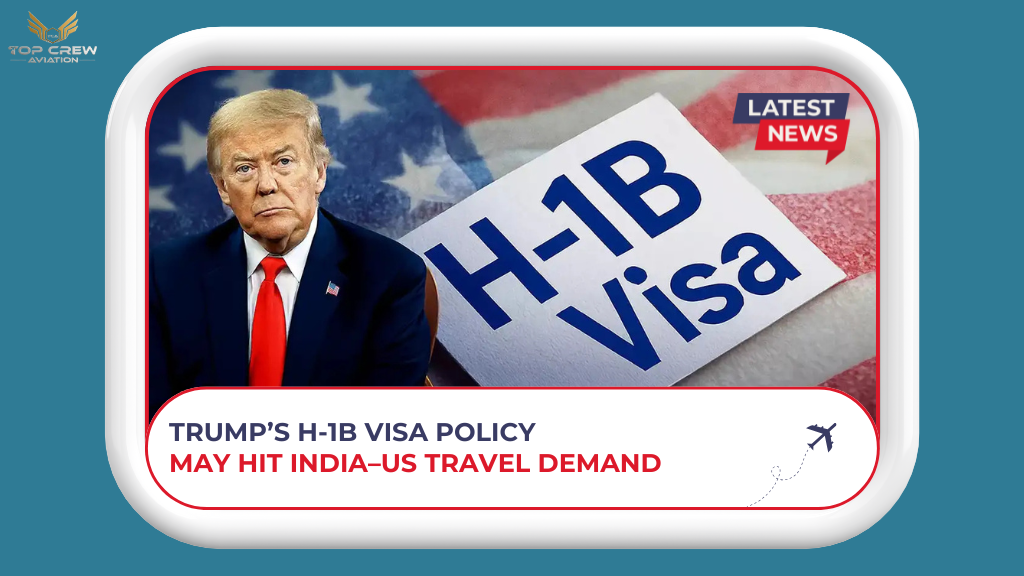Trump’s H-1B Visa Policy May Hit India–US Travel Demand
The United States has proposed a steep $100,000 filing fee for new H-1B visas, a move that could drastically change the way Indians travel to and from America. Since Indians account for the largest share of H-1B holders, any major change in this category is bound to influence airlines, tourism, and the wider economy on both sides. The aviation industry is already preparing for possible turbulence.
Key Impacts
1. Airlines Cutting Capacity
Air India and other carriers are planning to scale down the number of flights on India–US routes. Middle Eastern airlines that rely heavily on Indian passengers for their US connections are also witnessing a visible dip in demand.
2. Drop in Travel Intent
Currently, over 70% of H-1B visas go to Indian nationals. With fees rising and restrictions tightening, many families, students, and professionals are expected to reconsider their travel plans.
3. Short-Term Rush, Long-Term Slowdown
Industry watchers predict a short rush of applications before the rules take effect. But for the longer term, the policy will discourage mobility and hence passenger traffic will fall.
4. Economic Ripple Effect
Fewer travels mean fewer business travels, fewer visits to relatives, and thus less movement for educational purposes. This will force airlines to rationalize routes, losing revenue in the process. For India, it could put a dent in the steady flow of remittances coming in through professionals working in the US.
Conclusion
The proposed H-1B overhaul is more than just an immigration tweak—it has the potential to reshape one of the strongest aviation markets for India. For carriers, travel firms, and policy planners, the challenge will be to balance short-term shocks with strategies that keep long-term India–US connectivity strong.



